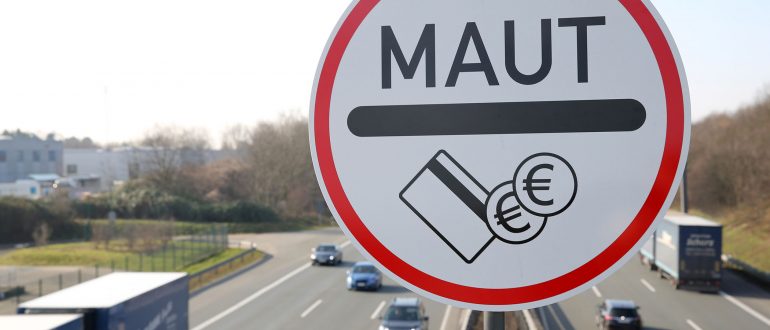
Discussions about the Car Toll in Germany: Does it Comply with European Law or Not?
There have been discussions for a long time on whether or not to introduce tolls for passenger cars in Germany. The discussions certainly did not end after the decision in favour was passed – on the contrary. Now the disputes are about whether the desired provision is compliant with European Union law or not. The EU Commission has in the meantime started treaty infringement proceedings against Germany. As a consequence the start date for the car toll, which was originally planned for 2016, has been pushed backwards.
The key point in dispute is whether the tool infringes the prohibition on discrimination. An adjustment to the road tax introduced in parallel to the law on the car toll aims to reduce the tax by the amount of the toll for German car drivers. They would therefore be charged less than the citizens of other member states using German motorways. In addition to the reduction via the road tax scheme, the price of short-term stickers compared with annual stickers was criticised. As the lowest price annual sticker would cost €20, the same price would be excessive for a two-month sticker But this would enable those living in Germany, who can use the motorway and main road network on a daily basis for a whole year, to be much better off than those from other countries who only access them for limited periods.
In the treaty infringement proceedings, the EU Commission will initially write a formal notice to which the federal government will have to make a statement within eight weeks. If no agreement can be reached the proceedings would continue before the European Court of Justice. The relevant draft law has already been improved once. But according to the EU traffic commissioner, Violeta foreign languages. Bulc, the new version would also not comply with European law. The planned provisions are also the subject of dispute among German legal experts. Some are of the opinion that the planned law is completely compliant with European law. Those from other countries would not be discriminated against because they would have to pay the same amount for the toll but those from within Germany also have to pay road tax.
A 2014 assessment by the scientific service at the German parliament however came to a different conclusion: there is indirect discrimination in favour of German citizens. Whereas the prices for domestic annual stickers would depend on the car’s engine size, year of registration and environmental friendliness, the short-term stickers would have flat-rate prices. This could be resolved by also classifying the short-term sticker prices using the relevant criteria and making them cheaper than the annual stickers. The general European discrimination ban is anchored in Article 18 of the Treaty on the Functioning of the European Union. It prohibits discrimination based on nationality. Unequal treatment is only permitted when there is proper justification for it.
The statutory measures are not in and of themselves discriminatory. It could also be argued that vehicle owners in Germany are not only German by nationality. But isolated consideration of the statutory measures appears on the one hand not to be appropriate. On the other, the fact that citizens of other states could own vehicles in Germany does not completely remove the discrimination. But the discrimination remains at most indirect. With regard to the question about the compliance of the planned toll with EU law, the Commission apparently has better arguments. Legal security could be achieved by harmonisation across the Union, comparable with the toll for lorries using the so-called Eurovignette Directive.
This article is part of CISS’s cooperation with the Diplomatic Magazine, issue 08/2015.
